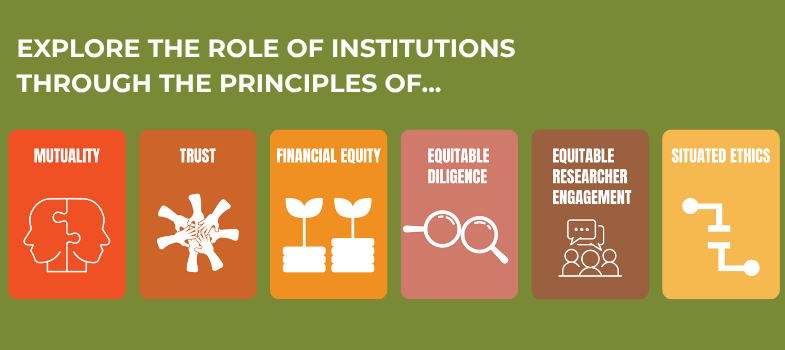Welcome to the Partnering For Equitable Research (PEERS Gallery) course
All research is inherently collaborative as it involves other people, and we should try to make sure that these collaborations are equitable. If we are not looking to how our ways of partnering are fair to everyone involved, then we risk research being extractive and exploitative of some partners.
Although there is a lot of interest in research equity, many resources focus on principles or offer checklists that emphasise individual, or team, action. This free course takes a different approach.
1) It invites you on an immersive learning journey via a dynamic virtual gallery, where you will encounter real-world stories from diverse research teams. These exhibits reveal how inequity appears within research and the efforts made to build fairer partnerships.
2) The course shifts the focus away from individual researchers and research teams and instead focuses on the powerful role institutions play in shaping research relationships. Institutions, both yours and those of your research partners, determine the conditions for how research relationships work by setting policies, protocols, practices, and processes. However, their role in reinforcing inequities and power imbalances is often underestimated or ignored.
The projects featured in this course are funded from the UK and primarily based in Africa, with examples from Asia and Latin America. As a result, many discussions focus on Global North–Global South dynamics. However, the lessons apply across disciplines and geographies, as institutional constraints affect all forms of collaborative research.
Designed for anyone engaged in, or curious about, partnered research, this course (and the accompanying handbook) aims to spark thoughtful reflection on how to build, sustain, and transform equitable relationships. Not by prescribing fixed actions, but by inviting you to explore and reshape your own practices with curiosity and intention.
